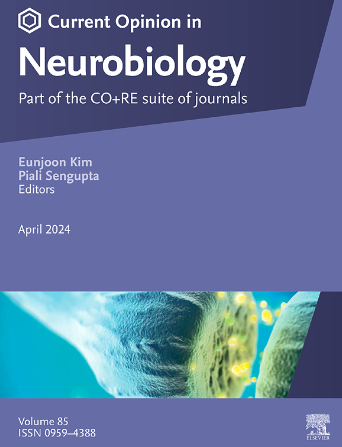Advancements in autism spectrum disorder research --from mechanisms to interventions
IF 5.2
2区 医学
Q1 NEUROSCIENCES
引用次数: 0
Abstract
This review summarizes recent advancements in the research of autism spectrum disorders (ASD), emphasizing genetic underpinnings and their implications for neurodevelopment and cognitive functions. It explores both syndromic and nonsyndromic ASD, highlighting the discovery of critical ASD-related genes and their mechanistic roles as revealed by studies using genetically engineered mouse and non-human primate models. While these models have shed light on the potential of synaptic dysfunction to disrupt brain development, they also underscore the challenges of replicating complex cognitive dysfunctions observed in ASD. Recent successes in gene therapy, particularly through innovative approaches like gene replacement and base editing, offer promising pathways for addressing genetic anomalies in ASD. These therapeutic strategies, underscored by clinical trials and cutting-edge genetic manipulation techniques, pave the way for potential interventions that could profoundly impact ASD management and treatment.
自闭症谱系障碍研究的进展——从机制到干预措施
本文综述了近年来自闭症谱系障碍(ASD)的研究进展,重点介绍了遗传基础及其对神经发育和认知功能的影响。它探讨了综合征型和非综合征型ASD,强调了通过基因工程小鼠和非人灵长类动物模型研究揭示的关键ASD相关基因及其机制作用的发现。虽然这些模型揭示了突触功能障碍破坏大脑发育的潜力,但它们也强调了复制ASD中观察到的复杂认知功能障碍的挑战。最近基因治疗的成功,特别是通过基因替代和碱基编辑等创新方法,为解决ASD的遗传异常提供了有希望的途径。临床试验和尖端的基因操作技术强调了这些治疗策略,为可能深刻影响ASD管理和治疗的潜在干预措施铺平了道路。
本文章由计算机程序翻译,如有差异,请以英文原文为准。
求助全文
约1分钟内获得全文
求助全文
来源期刊

Current Opinion in Neurobiology
医学-神经科学
CiteScore
11.10
自引率
1.80%
发文量
130
审稿时长
4-8 weeks
期刊介绍:
Current Opinion in Neurobiology publishes short annotated reviews by leading experts on recent developments in the field of neurobiology. These experts write short reviews describing recent discoveries in this field (in the past 2-5 years), as well as highlighting select individual papers of particular significance.
The journal is thus an important resource allowing researchers and educators to quickly gain an overview and rich understanding of complex and current issues in the field of Neurobiology. The journal takes a unique and valuable approach in focusing each special issue around a topic of scientific and/or societal interest, and then bringing together leading international experts studying that topic, embracing diverse methodologies and perspectives.
Journal Content: The journal consists of 6 issues per year, covering 8 recurring topics every other year in the following categories:
-Neurobiology of Disease-
Neurobiology of Behavior-
Cellular Neuroscience-
Systems Neuroscience-
Developmental Neuroscience-
Neurobiology of Learning and Plasticity-
Molecular Neuroscience-
Computational Neuroscience
 求助内容:
求助内容: 应助结果提醒方式:
应助结果提醒方式:


